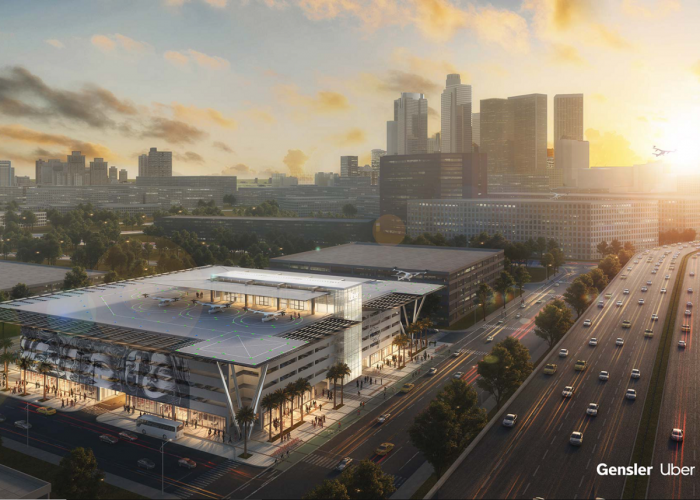The City of Los Angeles has announced a one-year programme to educate and engage the city’s residents around the introduction of low-noise, electric aircraft flying in local airspace by 2023. The public-private Urban Air Mobility Partnership between the Mayor’s Office, the Los Angeles Department of Transportation (LADOT), and Urban Movement Labs (UML) aims to enable urban air mobility.
According to a press release by the City of Los Angeles, the initiative will help Los Angeles map out challenges identified by local, diverse stakeholders surrounding public airspace and property rights — and implement solutions to these issues. Working together, UML and the City will lead a multi-stakeholder effort to visualize a “vertiport,” a new piece of LA’s transportation network where people can go to fly on an urban air mobility aircraft. The one-year partnership will culminate in a policy toolkit that can be utilized and deployed by cities, counties, and tribal governments across the country.
With financial support from the Urban Air Mobility Division of Hyundai Motor Group, this partnership will also see UML work hand-in-hand with Estolano Advisors to hire an Urban Air Mobility Fellow who will be charged with advancing a comprehensive public engagement strategy around urban air mobility — how it will strengthen our economy, when we might see vehicles take flight, and how it will impact and improve Angelenos’ daily lives.
Mayor Garcetti said: “The Urban Air Mobility Partnership will make our city a force for cleaner skies, safer transportation, expanded prosperity, and stunning innovation, and provide a template for how other local governments can take this new technology to even greater heights.”
“Urban Movement Labs is delighted to partner with the Mayor’s Office, LADOT, and all Angelenos to make urban air mobility work for our city,” said Lilly Shoup, Interim Executive Director of Urban Movement Labs. “This model of public-private-community partnership is foundational to UML’s mission, and will serve as an example for cities around the world on how to co-design new parts of cities’ transportation networks.”
“Developing a scalable system to support urban air mobility will ‘take a village,’ and Hyundai is proud to work alongside the City of L.A. and Urban Movement Labs to advance this important mode of transportation,” said Pamela Cohn, chief operating officer, Urban Air Mobility Division of Hyundai Motor Group. “This partnership sets a precedent for how diverse stakeholders can collaborate on a safe, community-centered approach to integrating aerial mobility technology into existing and new multimodal platforms.”
The announcement of the Urban Air Mobility Partnership comes on the heels of the publication of the “Principles of the Urban Sky,” a collaboration between Mayor Garcetti’s office, the World Economic Forum, and a group of 50 industry, not-for-profit, academic, and public sector stakeholders. The principles establish a joint commitment to safe, low-noise, and sustainable urban air mobility operations that prioritize equity of access, connections to transit, purpose-driven data sharing, and local workforce development.
This is tied to LADOT’s work to integrate aerial transportation with L.A.’s ground transportation systems.
“Now more than ever, with so many suffering the impacts of a devastating pandemic, Los Angeles needs a resilient transportation network that can adapt to the needs of its communities with the flip of a switch,” said LADOT General Manager Seleta Reynolds. “As we prepare to include Urban Air Mobility as a viable option for moving goods and people across our City, it is critical that we hear from stakeholders and design a system that works for all Angelenos.”
Since its launch in November 2019, UML has worked with Los Angeles World Airports (LAWA) to modernize its LAX FlyAway shuttle service; launched two pilot projects on sustainable, last-mile delivery services; and most recently, announced the first Transportation Technology Innovation Zone in the West San Fernando Valley, where companies can apply to test their transportation solutions for the community’s mobility challenges. With support from UML, Kiwibot, a delivery company, is currently testing autonomous robots in the Warner Center, with the potential for contactless delivery.
For more information visit:




